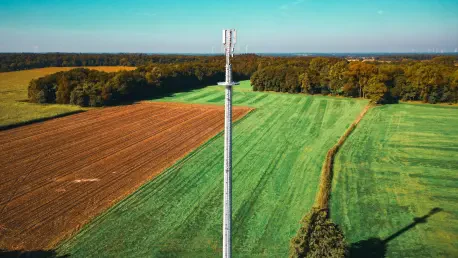In recent developments, various telecom industry groups have expressed concern over President Trump’s administration’s decision to reassess and suspend the Broadband Equity Access and Deployment (BEAD) program. This initiative, valued at $42.5 billion, aims to extend broadband connectivity across rural America, a vision strongly supported by stakeholders focusing on community upliftment and economic growth. The joint lobbying effort includes notable associations such as USTelecom, NTCA–The Rural Broadband Association, the National Rural Electric Cooperative Association, and others. They have collectively penned a letter to the President, emphasizing the necessity of removing what they perceive as undue program restrictions under the Biden administration. These groups advocate for letting states manage the implementation process to avoid unnecessary federal delays, contending that states have more insight into local needs and technological solutions. As the administration reviews previous program requirements, concerns arise about a potential shift toward satellite broadband services, like Elon Musk’s Starlink.
Implications of Trump’s Policy Review
Trump’s administration, under the guidance of Commerce Secretary Howard Lutnick, initiated a comprehensive review of the BEAD program, proposing a more technology-neutral approach that would emphasize outcomes over specific technology preferences. This shift could potentially favor satellite broadband over the traditionally advocated fiber-to-the-home (FTTH) installations. Such considerations are causing unease among stakeholders who view fiber infrastructure as essential for ensuring long-term connectivity, resilience, and job creation should be the primary focus. The fiber-first approach is widely regarded as providing robust infrastructure capable of delivering enduring value to communities. Nevertheless, questions arise regarding the balance between technological advancement and meeting rural regions’ specific needs.
The efforts of major industry groups continue to support the original BEAD framework, arguing its potential to empower states and decentralize federal control, thus supporting local expertise and decision-making. This position resonates with an April letter signed by 115 bipartisan state legislators advocating for optional, rather than mandatory, changes to program conditions. They warn that enforced amendments might compromise state autonomy, upset existing plans, and further delay broadband deployment by potentially more than a year. This dissolution of the Digital Equity Act has added complexities to the larger digital infrastructure strategy, underscoring the importance of timely approvals and effective deployment to maximize rural economic benefits.
Economic Impact on Rural Communities
The ensuing delay in the program’s rollout threatens the economic prospects of rural communities that stand to gain from enhanced broadband access. With the BEAD initiative stalled, these areas risk missing out on substantial opportunities for connectivity-driven socio-economic advancements. Industry leaders stress that time is of the essence, noting that every delay translates into lost potential for growth in underserved regions. Local businesses echo these sentiments, emphasizing real-world implications of postponed progress. Stakeholders like David Herring, CEO of ClearPath Fiber, and Josh Etheridge, CSO at EPC, a Louisiana-based broadband construction company, have voiced concerns about the hindrances posed by changing priorities toward satellite broadband solutions.
The fiber-first strategy was initially perceived as pivotal for creating strong infrastructure and fostering sustainable growth. Herring warns against shifting priorities toward satellite services, which he regards as less beneficial in delivering lasting infrastructure compared to fiber. Etheridge underscores the economic ramifications the pause has imposed on his business operations, including layoffs and the downsizing of subcontractors due to the unexpected halt in anticipated BEAD work. These individuals articulate the frustration felt, perceiving the program’s suspension as indirectly undermining progress intended for rural America and counter to the administration’s early commitments to enhance rural broadband access.
Advocating for Timely Deployment and Local Autonomy
In a recent shift, telecom industry groups voiced concerns over the Trump administration’s plan to reevaluate and halt the $42.5 billion Broadband Equity Access and Deployment (BEAD) program. This initiative is crucial for expanding broadband access across rural America, supporting community development and economic progress. Leading associations like USTelecom, NTCA–The Rural Broadband Association, and the National Rural Electric Cooperative Association are united in advocacy. They’ve written to President Trump, urging the removal of what they see as restrictive conditions imposed by the current administration. These groups argue states should spearhead implementation, believing they better understand local demands and technology. As the administration reviews existing rules, worries about a possible pivot to satellite solutions, such as Elon Musk’s Starlink, emerge. Many fear this could overlook terrestrial broadband benefits and the unique challenges faced by rural communities, potentially impacting future connectivity goals.









